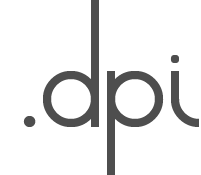Against recurrent and rhetorical assaults from the “creative” industries and governments that claim loud and clear that copyrights and intellectual property are the saving grace of culture, some creators diffuse their work and reuse, reinvent and revolt themself and play. They claim free culture as both movement and public discourse – a discourse that is multilingual.
Extension of the public domain, prism of freedom, translation of a universe or restoration of a natural state - can free culture interpret itself freely? What makes it culture? What freedom does it embody? What is it fighting for? What materials is it using and what relationships is it building on?
Dpi22 Free Culture offers a number of propositions that are sometimes at odds, tensing against one another. Throughout the issue, they act as dialogue from the artists-thinkers of this culture and freedom and showcase a virulent dynamic.
The seven guest authors speak to us by way of Macedonia, Australia, France and Canada. They speak of career paths that transcend these borders while being all too aware of their associated legal, commercial and moral yokes. Their analysis and practices conjure up struggles and the other sides of privation and privatization – thus allying themselves to activism born out of the open source movement. They also elaborate on transitions, crossings and explorations that are poetic, playful and political as they infuse our relational and technological experiences with desire, depth, transgression, curiosity and breaths of fresh air.
Some of them tackle culture and freedom, the culture of freedom, the freedoms of culture, its components, its trends, its flaws, its hopes and dormant episodes. Others keep a distance and describe what transpires from these creations and positions. Tectonic poetic of epistemology, free culture plays with and mocks the appropriation of formats, of topics, of disciplines and mediations. Sometimes in a clumsy manner. With weight in the webs of the network – but with stakes that take anchor and are complicit.
Aymeric Mansoux questions the meaning of the word free as art serves it up in every possible way, as we wave it up high like a flag, as it becomes rhetoric. When it is partisan, pensive, militant or transposing. Through his analysis of the interpretations that art makes of free culture, he invites us to take a look at the trends in place, the overhauls, the haphazard baptisms and the works that deeply shake up and uproot the dominant cultural system.
Pascale Gustin works with text and source code, a vast array of texture and materials. The information that flows within herself, her computer and the network is a ramified environment. The digital universe is a flux, a river that she trickles between her fingers to feel consistency. Carnaval et carême is a work of words that evolves by reflecting on the sine qua non conditions of creation in the digital age.
Hacker, feminist, performance artist and theorist, Nancy Mauro Flude brings us in a world where toys and techniques are being desecrated, where little girls dig and fiddle with their dolls collection, where utencils, instruments, endowments and accessories have the right to be discovered, examined and transformed. Gray magics, hijackings, driftings and seizures of power are many of the sensitive and subversive subterfuges by which the artist urges, twist and explores the esthetic politic of the open source spirit.
Through her observations on the role played by synthetic biology in the contemporary scientific landscape, Britt Way presents a collision between science, free culture and hacktivism. This discipline which analyses, conceives et synthesizes new systems and biological functions fights for a science that is transparent and accessible. It also addresses burning questions surrounding ethics and philosophy (the patenting and manipulation of the living as well as the types of intellectual property unique to scientific spheres). Re-appropriation of a hunt guarded by a scientific elite, synthetic biology puts findings and debates back at the center of society. The furthering of knowledge is a public affair. The only part of this evidence that has been examined was its surface, the same one that privatizes, commercializes and limits access, research and the sharing and creating of knowledge.
Sarah Boothroyd seeks freedom by means of recording - picking, matching and weaving libertarian speeches taken from the tumults of social and media territories around the world. Freedom is in the streets, it can be taken and taken back. Filters are part of this exchange. Her artivism assembles and disseminates the echoes of uprisings, screams and speeches. Beyond dusty archives, reminders of struggles rise from the dead to the benefit our collective memory.
Reflecting on the cultural and linguistic origins of the struggle brought on by free culture, Dragana Zarevska and Yasna Dimitrovska poke fun at the act of licensing collective memory, ambient culture and creation. They perform these privatizations while honoring their own absurdity. They challenge the ambient economical yoke and stage performances that cynically greet the belt-tightening measures and the cultural sclerosis that surround them.
Anne Goldenberg is interested in the political, epistemic and poetic aspects of collaborative platforms and participative devices. She has a PhD in Communication (UQAM, Montreal) and in Sociology (Unice, Nice) and wrote her thesis on "The Negotiation of Contributions in Public Wikis". This theoretical work led her to observe the poetics of collective contributions through various forms – multimedia, social sculpture, performance and installation. Inspired by free culture, she mostly explores the relationships between digital material, participative devices, the public and collective action. She facilitates open spaces and booksprints, and likes to make visible, readable and malleable the processes of co-construction of knowledge.

